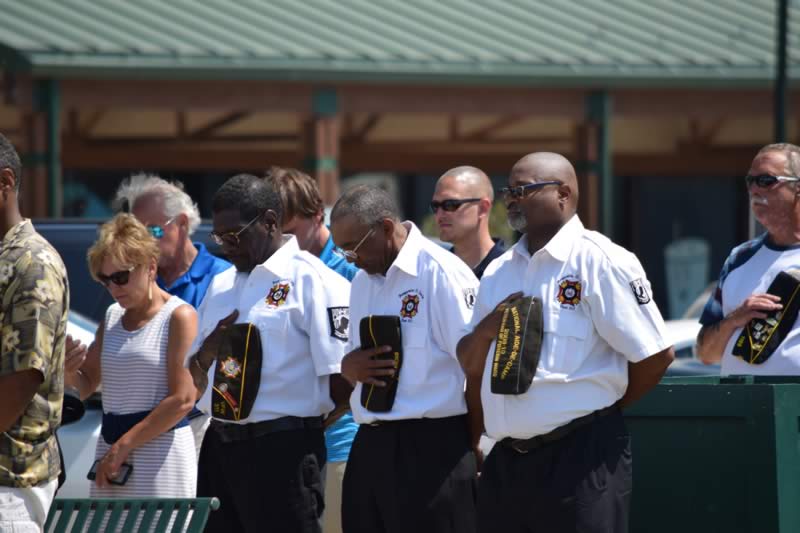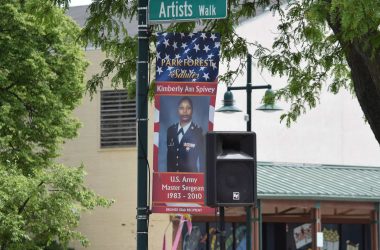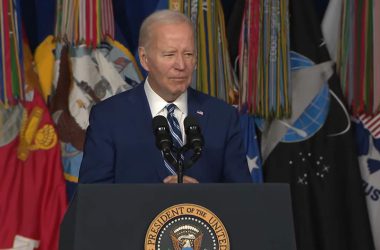HAWAII—(ENEWSPF)—April 2, 2014.
SECRETARY OF DEFENSE CHUCK HAGEL: Good afternoon. Let me first thank Admiral Locklear and his team for their accommodations and for giving my colleagues and I from the ASEAN countries the opportunity to come aboard. And Gen. [Terry] Robling, thank you, Admiral [Robert] Girrier, thank you and your team. This has been very informative and I know we’ve got more to see but I wanted to be sure and right at the front end thank all of you and all of your teams for the work not just today in helping set up this conference but what you do every day.
Let me begin with a couple of comments regarding what happened at Fort Hood, Texas, today. I just got off the phone with our senior leaders at the Pentagon to get an update. I know there have been a number of reports out in the press. Fort Hood is still locked down. We are still getting facts. It’s a terrible tragedy, we know that. We know there are casualties, both people killed and injured. We don’t have all the facts yet — we will get those. It’s still under investigation.
Our military has it, as well as law enforcement. I understand the commanding general of Fort Hood, Lt. Gen. Mark Milley, will be holding a news conference here shortly. I know the president addressed this as well this afternoon. I have no additional facts or figures other than what I’ve just told you. As we go along, as I get those facts, I’ll share them with you.
Let me now make a couple of general comments about what we are doing here and what our day has been like and we’ve got another day tomorrow. I’ll begin by thanking the ASEAN defense ministers for their participation, their commitment to come here and be part of something that I think is, and I think they share my feeling, something that’s important.
We had had an opportunity this morning to spend a couple of hours specifically focused on humanitarian assistance and disaster relief. We had USAID [U.S. Agency for International Development] Director Dr. Raj Shah in, as well as our head of NOAA and other senior leaders in a number of our agencies, a number of NGOs. We had a senior representative from the United Nations and we also had some senior members from the private sector with us, the commercial sector.
And the focus was on our efforts to bring our capabilities together as countries that share our futures, our interests, our histories in the Asia-Pacific region, collective capabilities as it was noted this morning. In particular, as we started the day focused on humanitarian assistance and disaster relief, we can do more, we will do more, we are doing more. And I think there is ample evidence out there of how we have continued to collaborate and cooperate.
This afternoon, have spent some time here on the USS Anchorage. We spent some time looking at the V-22. There will be a couple of demonstrations here after we’re finished here in the next few minutes.
But also we focused on military-to-military relationships in our joint exercises, that we continue to strengthen and deepen and widen. And it’s not just about military-to-military exercises. There’s a purpose.
It’s security. It’s stability. It’s assuring that all nations have commercial options. It is trade. It’s exchanges. It’s about free people. And as I have said, and you all know, the United States has been a Pacific power for many years.
We intend to continue to be a Pacific power, to cooperate with our ASEAN partners of all nations in the Asia-Pacific.
So we focused on the different dimensions of that relationship today. We will have a dinner tonight which will note some of the accomplishments and have some fun with this relationship.
Tomorrow we’ll get back to more serious business on some further dialogue and conversation about cooperation and communication, and how we can broaden our efforts to cooperate, and again, focusing on cooperative capability.
So you’ve heard me talk a lot about this generally as we’ve set this up. So let me stop there. And then if you all want to go deeper into some of these areas, or any questions, I’ll be glad to respond. Thank you.
MODERATOR: Okay. We’ve got time for just a few questions. First one to Lolita Baldor over here.
Q: Thank you, Mr. Secretary. Lolita Baldor with the AP.
Regarding the Fort Hood shooting, Mr. Secretary, this is the third shooting, as you’re aware, in the last several months. And the second in which double digit numbers of people have been either killed or injured.
You’ve just completed — you’ve just gotten a study from the Navy Yard shooting. I was wondering if you could talk a little bit about what you think is happening here. Is this not working?
What is the military not doing well enough in protecting its bases? And is this a problem that’s simply too difficult to solve?
SEC. HAGEL: Well, Lita, first of all, we will continue to address the issue. And as I said, any time you lose any of your people to these kinds of tragedies, there’s an issue, there’s a problem. We don’t have the facts.
We will get the facts. And when we have those facts, specifically about Fort Hood, we will address them. We don’t have any choice here but to address what happened, and do everything possible to assure the safety of our men and women who work on these bases, and their families.
That isn’t an option. It isn’t a matter of a question or a challenge too tough. We will do it.
I just can’t address anything much beyond just my general comments, Lita, on Fort Hood, because I just don’t know enough of the facts. We just don’t know much beyond what I’ve already told you.
You noted that we just completed intense reviews, and also responses and actions to those reviews, as I announced last week, specifically regarding what happened at the Navy Yard in Washington, D.C.
I know when Secretary Panetta was here, we had a tragedy at Fort Hood. And Secretary Panetta empanelled a review group with recommendations, which he implemented, on actions.
Obviously, again, when we have these kinds of tragedies on our bases, something is not working. So we will identify it. We’ll get the facts. And we’ll fix it.
Q: Nasir Hussaini from Al Jazeera.
Many partners in the Middle East are looking at the U.S. efforts in Asia, of the importance given right now, and wondering if the United States is a little bit moving off and away maybe from its friends in the Middle East, and partners over there.
And they have at least some concerned questions. What would you answer to that? Thank you very much.
SEC. HAGEL: The way I would answer your question is the way I’ve answered it over the last year. The United States of America is not retreating from any part of the world. There’s no indication of that, especially the Middle East.
We have a tremendous resource asset base in the Middle East. We’ll continue to honor our commitments to our partners in the Middle East, just as we are in Europe, to NATO.
The rebalance to Asia-Pacific is one that has evolved over time, that President Obama initiated about three years ago. When you look at the realities of this region of the world, the greatest number — in fact, the three largest economies in the world are in Asia-Pacific.
And you go right down the inventory of metrics, this is going to be and is now a hugely important part of the world. Not that other parts of the world are not important. But a country, the United States, is always reassessing their deployment of assets. But that doesn’t mean we’re retreating.
That doesn’t mean we’re leaving any part of the world. In fact, it’s just the opposite. I have reminded people last week, even, we have 400,000 people, American men and women, stationed or deployed abroad in almost 100 countries.
Now I don’t know if that is any indication of a country that’s retreating from the world or any part of the world. And we have never said, and we have not said that even with budget restraints we are prioritizing our commitments in our interests and where we are in the world.
So, no, we’re not leaving the Middle East. We’re committed to our partners in the Middle East just as we are elsewhere in the world.
Q: My question is twofold. You said that the U.S. has been trying to reaffirm that it is trying to rebalance towards Asia. But the Department of Defense is under the budget cuts. So how do you overcome that, budget cuts?
And also, do you have any plan to make this forum an annual event?
SEC. HAGEL: Well, do I have any plans to make — I assume what you mean, the ASEAN meeting an annual event. First, that’s not my decision. That is the ASEAN ministers’ decision.
I would hope that we could do something similar to this. But that’s for the ASEAN ministers to decide. They know, on a bilateral basis, how much we cooperate and we work with each of their countries, as we do with ASEAN Defense Ministers-Plus, which I attended, and Secretary Panetta attended.
I will attend again in Burma later this year. So I think we want to continue to further strengthen and coordinate with our ASEAN partners. I would be — I would welcome very much to make this a regular event.
As to your question about the budget, I addressed a little bit of that. Yes, as I have noted, we are under budget restraints. We have addressed that. I just presented the president’s budget about three weeks ago, along with the chairman of the Joint Chiefs of Staff, General Dempsey, to the Congress.
We laid out our priorities. We have prioritized our resources. We have said what we think we need in order to carry out the missions and objectives of our country, to keep America safe and to honor our commitments to our allies around the world, which we will continue to do.
And recognizing all of those realities, we’re still going to be able to do exactly that.
MODERATOR: This will be the last question. Sir.
Q: Secretary Hagel, Paul Vercammen, CNN.
A quick question. We understand you met with the defense minister of Malaysia. And he was asking for more assets. I’m curious as to what those assets might be.
And as a follow, there has been some talk that the Malaysians, some officials are considering the left turn a criminal act. Have you heard what that might be?
SEC. HAGEL: Well, it is true that I have met a number of times with my Malaysian counterpart and my friend. And we’ve talked about — as we did this morning. And he would be able to explain or say or state whatever he wishes on all of this.
But I thought the minister laid out very clearly the challenges that he has faced, all of the ASEAN countries have faced, and other countries in Asia-Pacific as a result of this very mysterious flight that all of the world is united in trying to assist and has been assisting.
We, certainly, the United States, have been, as well as all the countries, in complying with every request made by the Malaysian government. The minister did not ask me for any specific new items.
Again, he can speak for himself on whatever he wants to talk about. I have told the Malaysian minister, again, as I have in the conversations we’ve had over the last three weeks, that his requests will be met if it’s at all possible.
And I think we’ve fulfilled every one of their requests that he has made. And we will continue to do everything that we need to do to assist the Malaysian people and all the people of Asia-Pacific to try to sort this out and what happened.
Source: defense.gov








